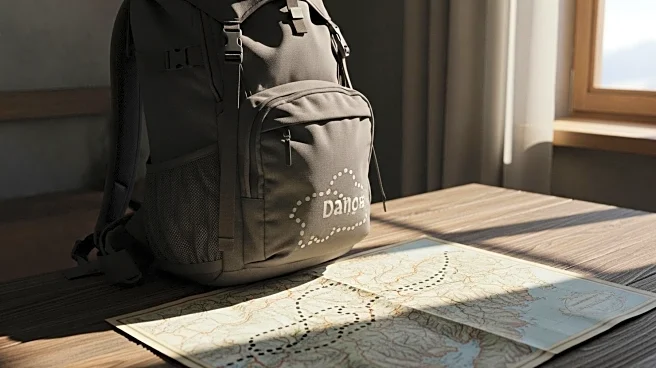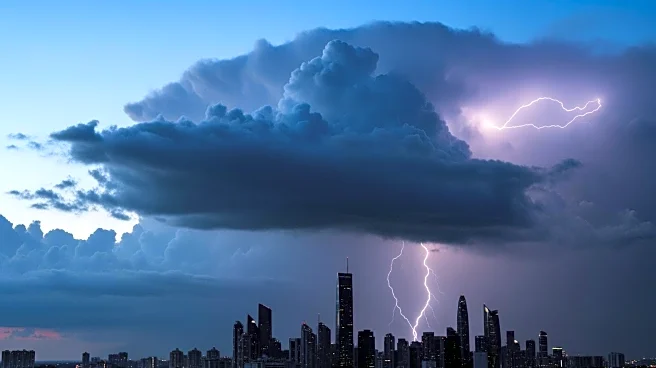What is the story about?
What's Happening?
Avi Rosenfeld, a 19-year-old Israeli traveler, recently embarked on a rare journey to Nagorno-Karabakh, a region known for its high risk of land mines and military tensions. The area, internationally recognized as part of Azerbaijan, has been a focal point of conflict between Armenia and Azerbaijan. Rosenfeld joined an official tour organized by the Azerbaijani government, making him one of the few foreigners to visit this restricted zone. The region has been largely closed to outsiders following a series of conflicts, the most recent being in September 2023, when Azerbaijan regained full control over Nagorno-Karabakh. Despite the dangers, including the presence of land mines and proximity to the Iranian border, Rosenfeld was part of a convoy with military and police escorts, allowing him to safely navigate the area.
Why It's Important?
The visit highlights the ongoing geopolitical tensions in the South Caucasus region, particularly between Armenia and Azerbaijan. The presence of land mines and military convoys underscores the fragile peace and the potential for renewed conflict. For Azerbaijan, allowing foreign travelers like Rosenfeld is part of a broader strategy to rebrand Nagorno-Karabakh as a potential tourist destination, despite severe travel advisories from Western governments. This move could have significant implications for regional stability and international relations, as Azerbaijan seeks to assert its control and reshape the narrative around the disputed territory.
What's Next?
Azerbaijan's efforts to promote Nagorno-Karabakh as a tourist destination may continue, potentially leading to increased international interest and investment in the region. However, the ongoing military presence and the risk of land mines pose significant challenges to these plans. The international community, particularly Western governments, may continue to issue travel advisories, impacting the region's accessibility and safety. The situation remains fluid, with potential for further diplomatic and military developments as Azerbaijan and Armenia navigate their complex relationship.
Beyond the Headlines
The exploration of Nagorno-Karabakh by foreign travelers like Rosenfeld raises ethical questions about tourism in conflict zones. While such visits can bring attention to the region's challenges, they also risk normalizing the presence of military forces and the dangers posed by unexploded ordnance. Additionally, Azerbaijan's push to develop tourism infrastructure in Nagorno-Karabakh may face resistance from the international community, which largely views the area as a conflict zone requiring careful diplomatic handling.
















